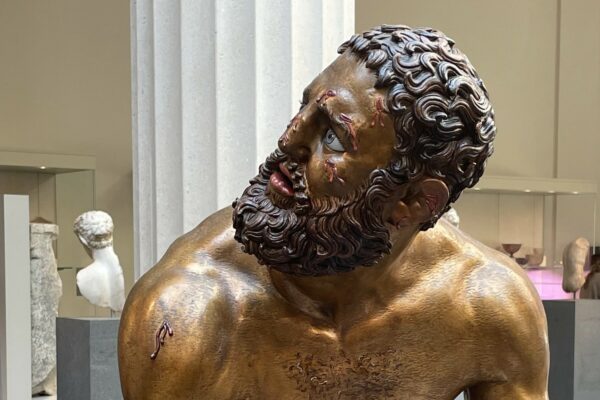All CLAS survey classes can be applied to the Classical Studies Minor.
CLAS-C 205 Classical Mythology (3 cr.)
What do Shakespeare, Dante, Percy Jackson, and Game of Thrones all have in common? They all draw heavily on Classical Mythology, the myths of Ancient Greece and Rome. Learn about these important societies through the lens of the stories they told about themselves. Meet Achilles, a warrior searching for meaning on the battlefield. Meet Medea, a powerful woman raging against social conformity. Meet Hercules, Theseus, Perseus, and other heroes as they destroy their loved ones in a quest for glory. Visit the ancient world and see what it can tell us about ourselves.
CLAS-C 210 Ancient Medicine and Modern Terminology
- combined with MHHS-M 325
This course develops understanding of medical terminology and the Greco-Roman healing practices in which much of this terminology developed. For medical terminology, the course covers spelling, pronunciation, abbreviations, analyzing words based on their root, prefix, and suffix, and identifying common mistakes in medical terminology. With the study of ancient conceptions of medicine and healing, the course reveals the richness of ancient healing practices beyond a simple doctor-patient relationship. Designed for any student interested in the ancient world, but especially those intending to specialize in or understand medicine, nursing, dentistry, health sciences, microbiology, or related fields. MHHS-M 325 can be applied to the Medical Humanities and Health Studies Minor, as well as the Classical Studies Minor.
CLAS-C 213 Sport and Competition in the Ancient World (3 cr.)
The Olympics, theater, a general obsession with entertainment spectacles: our modern society can trace the origins of all these directly to Greek and Roman societies. Like our world, ancient Mediterranean cultures were engrossed by competitions of strength, speed, stamina, and skill. Their languages gave us terms such as “theater,” “stadium,” “orchestra,” “chorus,” and “arena.” Their art, homes, and public spaces were filled with images of athletes and gladiators. This class will provide you with an introduction to competition in the ancient world and encourage you to think critically about the relationships with modern competition.


